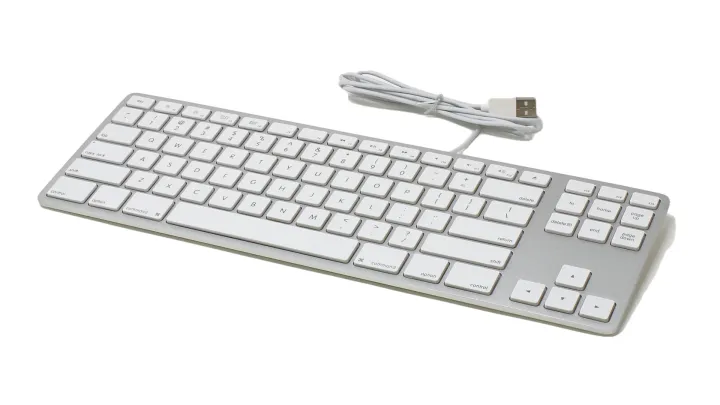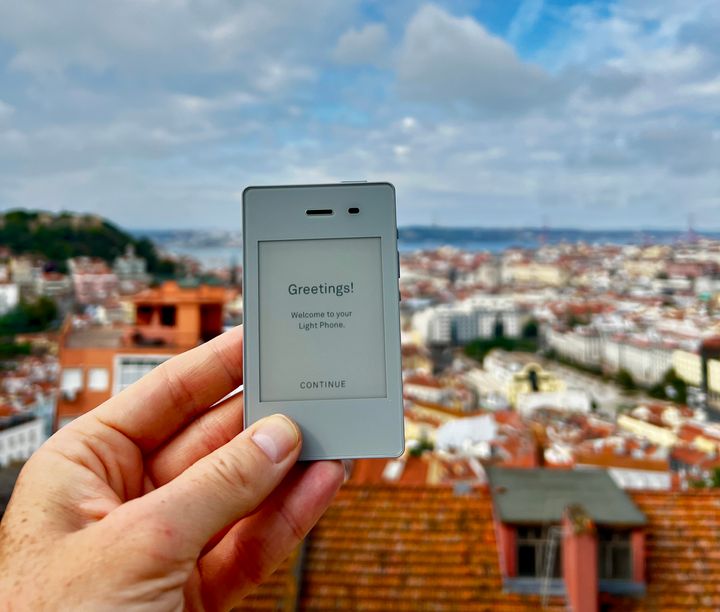Landscape Interview
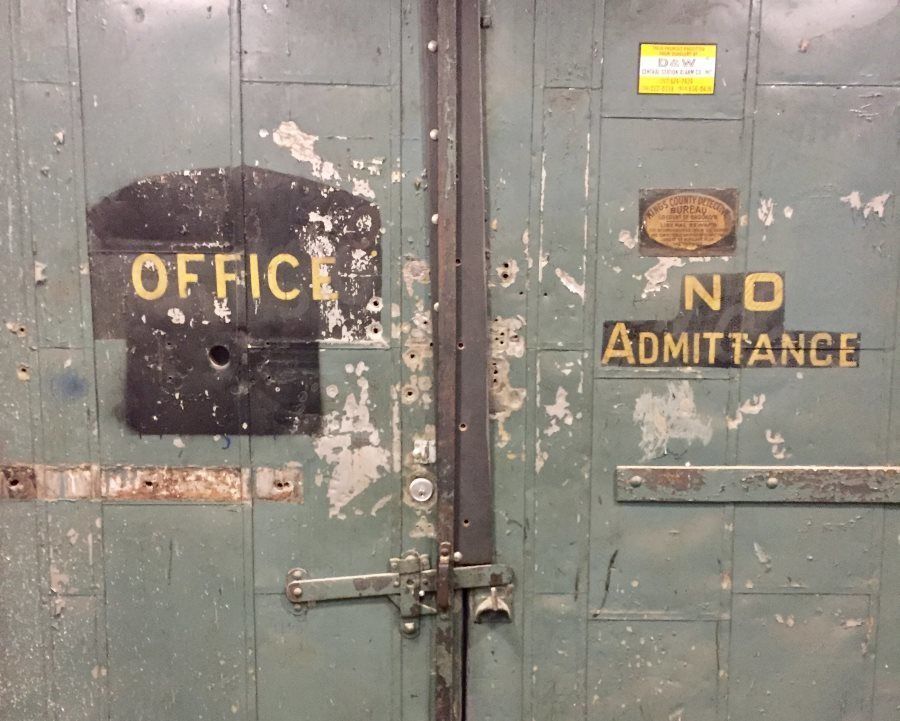
Eric Pitra references the modulation effect that occurs on a radio when flipping between two stations as an inspiration for his latest creation, Stereo Field. That find is one of those divergent moments in life that can act as a subversively transformative catalyst.
Some are annoyed by the inability to hone in on their station. In others, an immediate spark goes off and the radio becomes an instrument, the brain bewitched by a newly discovered audio landscape. Particularly fervent folk are propelled to go whole hog and S/DIY their radios or entirely new creations as a way to traverse this hedonistically hellish dimension like a scratchy sonic satan riding the static.
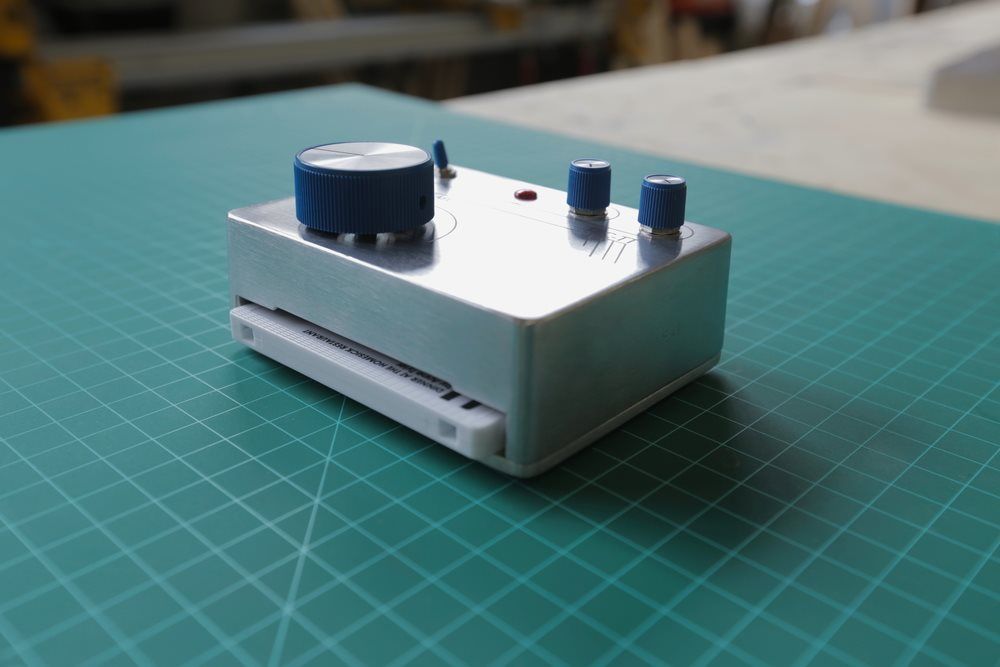
Chances are if you land somewhere in the middle of this sensory spectrum you have already heard of Eric's other creation the HC-TT, or Human Controlled Tape Transport, which is based on a mutilation of that other nearly-bygone but peculiarly reborn relic. This manually controlled cassette tape player has been used to wonderful effect by everyone from experimental hip-hop group Dalek and Kid Koala on tour, Mick Gordon on the DOOM soundtrack, Richard Devine on various sound spelunking and most recently paired with a terrible Casio drum loop in an underground viral hit by Baseck.
Interestingly, the Stereo Field represents a point of departure from a number of artistic projects based around an exploration and appreciation of cassette tapes. In 2014 there was '12', a very limited edition tape release collaboration with US-based Bulgarian artist Ivaylo Gueorgiev. In 2016, Eric scored the soundtrack for the award-winning documentary Cassette. Most recently, he worked with partner and poet Emily Brandt on an eery, text-based audio video piece incorporating an oscilloscope and vocoder.
Among these works there is a strange dance between function and the visceral. Like a sweaty handshake, highly undesirable more often than not, until you realize you're the one with the sweaty hand, and that maybe it's a sign of something or someone you shouldn't ignore. Within the HC-TT and Stereo Field, human interaction is demanded. You can't just hit play and walk away, these instruments are in the same family as a trumpet or tuba, separated by their material but both useless without skin or imagination.
Electronics are essentially dead, placing us squarely as the life givers, determining when and how and in what context to power them on and bring them to life. But it is quite a rare decision, conscious or otherwise, to have objects that utilize the person in the way that Eric Pitra's creations do.
Personally, I often find myself relatively uninterested in the maker in relation to their creation. It's kind of like talking about intimacy, whereby its power is lessened as your grasp grows. Yet, in the context where his devices are so connected to humanity, it feels like a fitting and rewarding opportunity to talk about some of the day to day particulars.
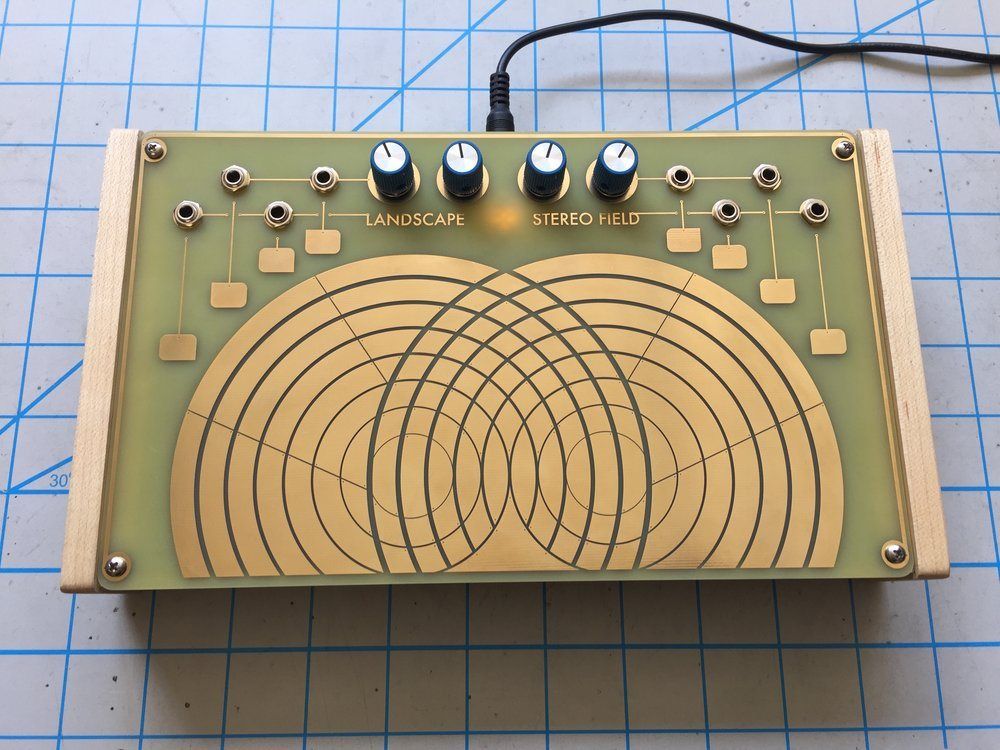
What's a recent project you're proud of?
My most recent instrument is the Stereo Field and what I'm actually most proud of is the amount of happy accidents that came together during the design process. It ended up opening many more timbres and functional capabilities than I could have ever planned for. When I finally got to experience the finished instrument in my shop I literally jumped out of the chair I was sitting in because I was in such disbelief of the textures I was hearing. I ended up creating an instrument that can be three things separately or at once (a touch synth, a touch audio processor, a chaotic CV controller) while at the same time only utilizing a very simplistic idea of open circuitry and the fact that op-amps are used as the basis for so many useful analog circuits. Your hands are patching different components together and for the most part creating very lo-fi and faulty versions of many common circuits like VCOs, LFOs, PWM, various wave shapes, wave folding, noise of all wild colors, distortion, lowpass filtering, High-pass filtering, sub octaves, pitch following etc. Things of this nature are all hidden in there along with so many lovely clicks and pops panning about. There is even a noisy Theremin type operation hidden in it as well. I'm still getting new sounds that surprise me daily which is really strange thing to experience as the person who designed it. I was excited by the initial idea but you never know until you place your hands on the first completed instrument in the way it was meant to be interacted with.
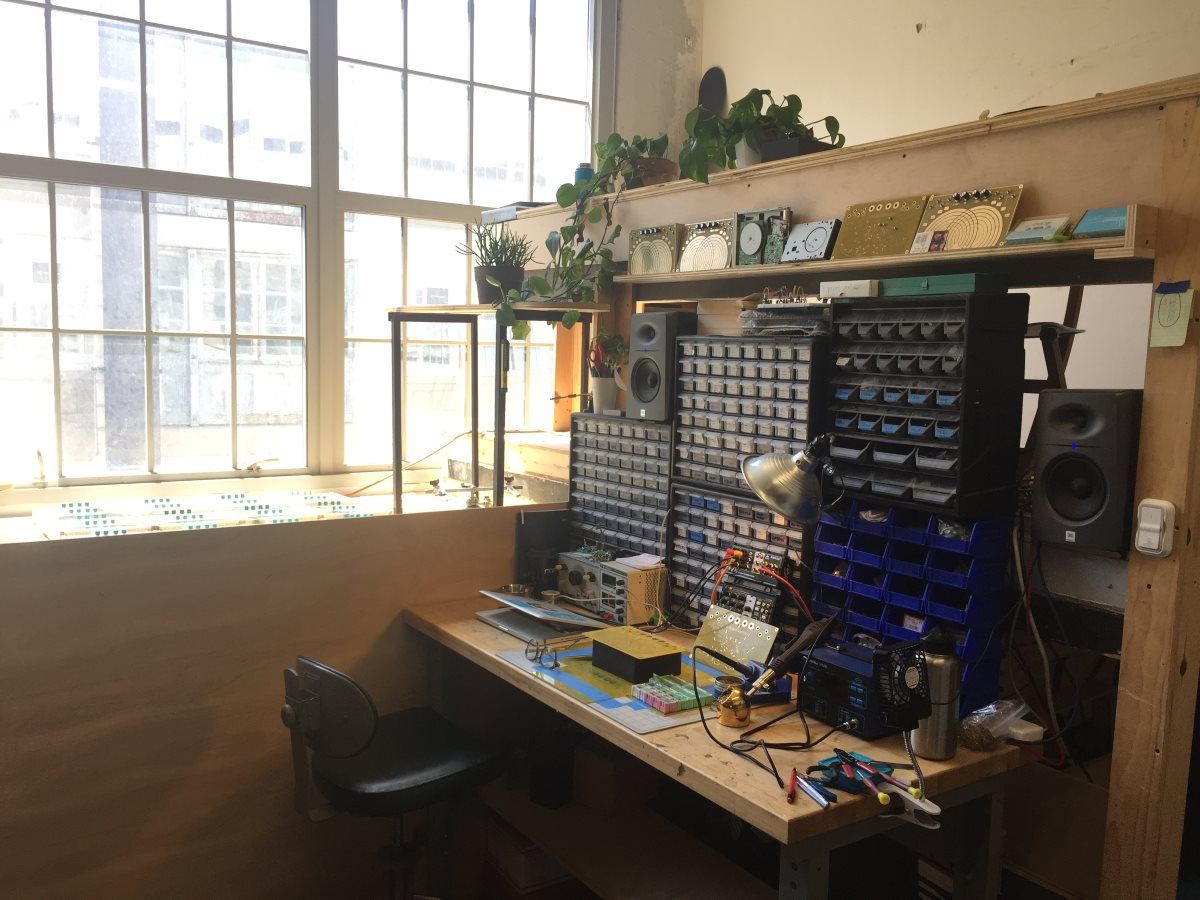
Do you plan things out methodically in advance or do you just experiment and see what happens?
Well, I'm always waiting for that seemingly magical moment where an idea materializes. And hopefully this idea contains the attributes of music and analog circuits that I find the most inspirational. These being organic rich tones, analog instabilities, and an interface that I want to be around. If there is a strong possibility for these attributes to fall in line with one another then I will obsessively begin designing the interface into a form that I personally will want to interact with. For me this means I have to want to look at it for long periods of time both during the design process as well as in use as an electronic musician. I'm a big believer in the interface and it's power over the musician. In my experience, if I am not drawn in by the interface both in aesthetics and directly accessible functionality then I will generally not create sounds that I am fully satisfied with. The process of arriving at a certain sound has to be enjoyable. That being said, I am really just focusing on the interfaces and instruments that I want to see and I just have to hope that other musicians agree with me.
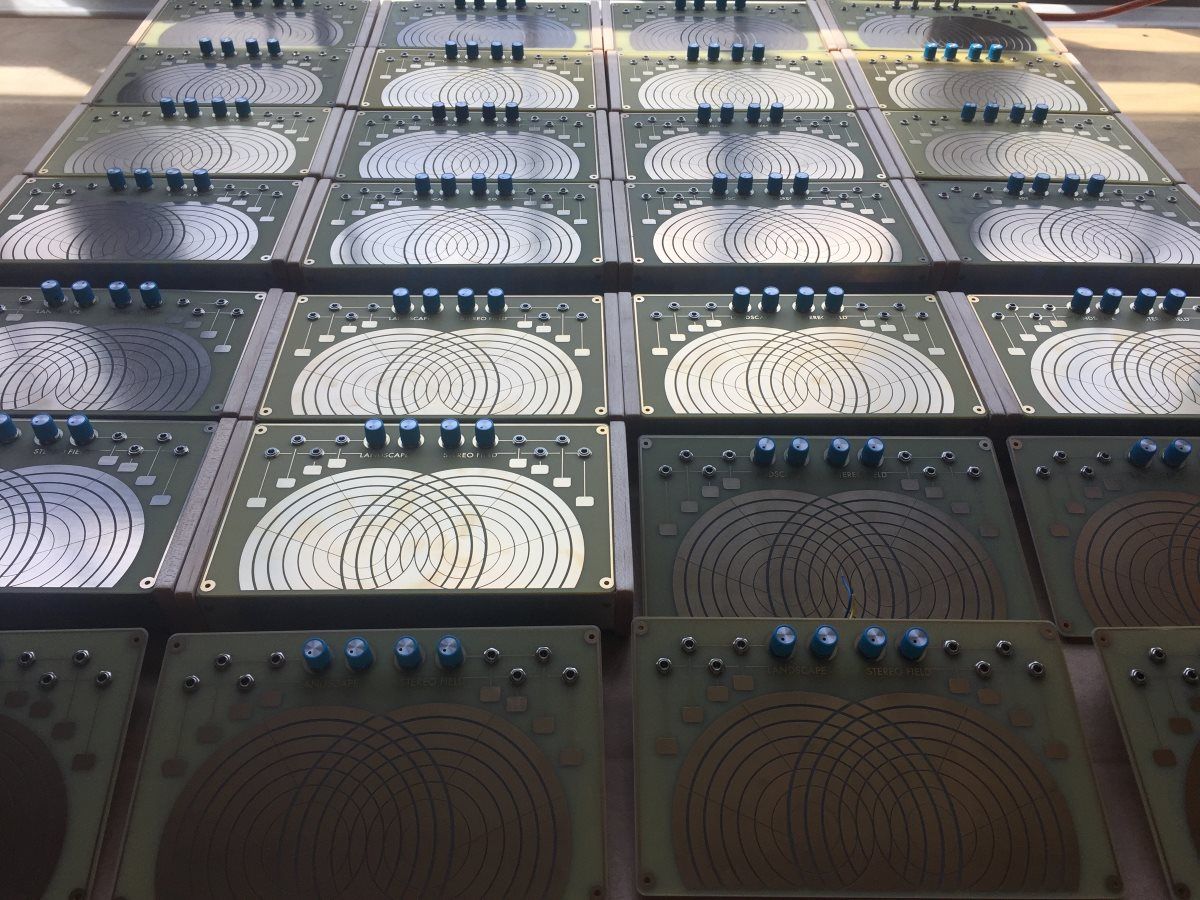
How do you stay focused?
I don't really! Well ok, I think the only way for me to stay focused personally is finding an idea where the potential of that idea feels so great that it gives me no other choice than to stay focused. I work in creative spurts which usually lead me to designing multiple instruments at one time which has the added bonus of "cross talk" between these ideas as they begin to inform one another and hopefully improve each other, aesthetically, sound wise and feature wise. To get back to your question, I stay focused by listening to music, interviews, lectures or even instrument demos depending on what tasks I'm doing.
Do you have any relevant training?
I'm pretty sure I don't have directly relevant training however, but I think that a good portion of various jobs and passions from earlier in life have helped inform my design decisions. I have a degree and worked in photography for a few years in the early 00's and was a woodworker and set designer for the past 8 years. I'm in a constant learning process and attempting to use that learning process to make decisions that maybe I wouldn't make if I had more of a grasp on things. Wishful thinking at least!
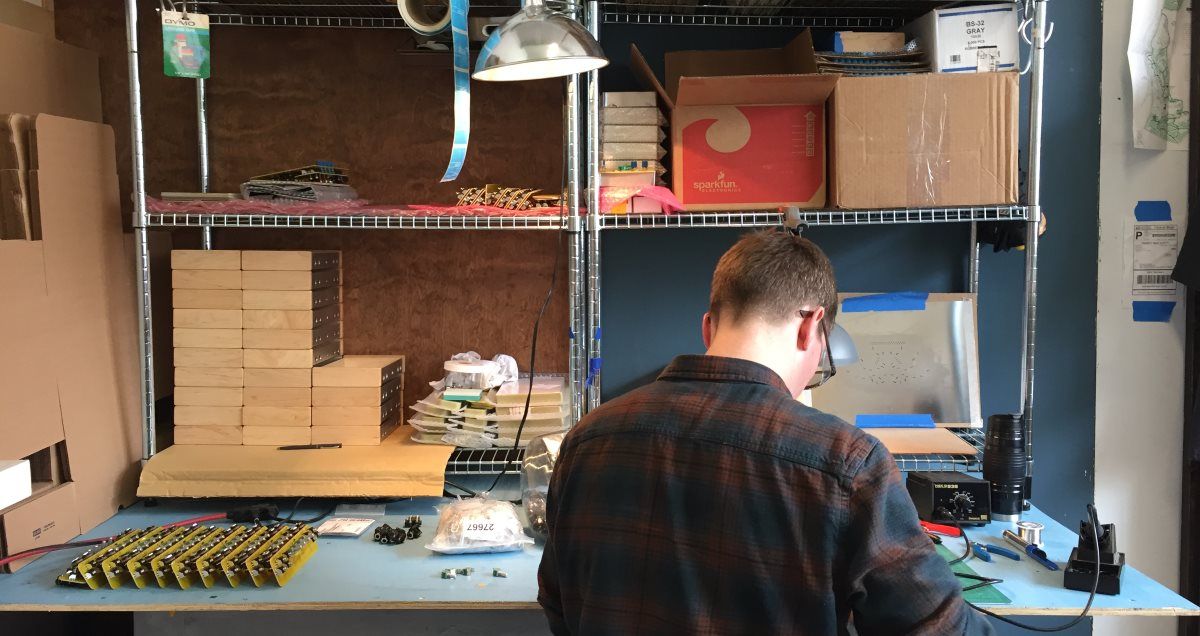
What technologies, techniques or trends are you curious about incorporating in the future?
Most of what I would love to talk about I can't until my next two instruments are finished but I suppose I can write in very annoyingly vague terms! I'm staying focused on touch interfaces for now and am very inspired by the directions they are able to go in and the form factors they can take on, especially when it comes to the fluidity of interface interaction with other controls on the panel. I'm also attempting to create a new manufacturing/design process and have it ultimately inform and change the overall shape of my future designs (annoyingly vague). A technique/trend that I feel is driving me a lot recently is one of impermanence of sound, to further explain, the amount of people embracing modular systems has drastically risen which also means an increase in the amount of people ok with the impermanence of sound (as apposed to presets). This is so freeing to me and is part of the idea behind the Stereo Field, you will find something that will sound just incredible but you know that as soon as you take your hands away that "patch" can be very difficult to find again, but the possibility of patches you've never heard before are always there which is pretty exciting. This sort of thinking is an extreme version of modular synthesis and it's magical impermanence of sound. My next two instruments will both deal with these ideas to some extent and for the most part guide the composer/performer to create music in ways which hope to facilitate an environment where they find it necessary to record their sessions as complete performances. I'm also very inspired by the idea of approaching the realm of modular complexity without needing to patch, only turning some knobs and using gestural movements. Or faster ways to arrive at similar territory. I've also been working on a kind of sampler/not a sampler idea for the last 6 months. It's sort of a sampler, sort of a synth, sort of a drum machine but at the same time not totally any of those things. So I suppose I am also really into the ideas between ideas or the tonalities that are available from more traditional instruments when used in ways which would usually be delegated to another instrument. This in itself opens up new sounds and new ways of working. For example like when I'm using my favorite synth and realize it's also my favorite "drum machine" by understanding that it possesses greater power and complexity than any traditional drum machine. I'm also working on an instrument that has the potential to deal with pitch in more freeing and interactive ways as I love complex non-traditional interactions between pitches and the huge potential for lushness there.
What music have you been listening to lately?
I've been listening to a lot of Rolando Simmons, Erykah Badu, AFX, Georgia Anne Muldrow, Suzanne Ciani, Kruthi Bhat, Alessandro Cortini, Ambient News, Kaitlyn Aurelia Smith, Laurie Spiegel and a whole lot of the Bollywood classics.
What are some of your indulgences? Movies, food, drink, visual, etc
Cookies, Indian food, meteorology and old broken synthesizers.
What have you failed at?
I have failed in some part by getting extremely involved in the manufacturing process due to the fact that I love materials, working with my hands and doing repetitive tasks. This has erased a great deal of my time which could have been better spent designing. It's great to feel connected to the instruments you are making however. Thankfully I have torn my self away from some aspects of the building process as well as hired someone on.
What do you wish someone had told you when you were starting out?
Well, I wish someone just told me to start sooner since I've known for quite some time that my biggest passions were electronic music and electronic instruments. Also, stay focused on learning something new every day so you stay immersed in the language.
Do you have any rituals or routines that are very important to you?
Meditation is incredibly important to me, especially living in the US with the continued (and amplified) normalization of sexism, racism, homophobia and all other forms of hate. I'm just trying to stay clear so I can show up for and stand with the people who are having their rights taken away.
Probably my favorite ritual of all time is sitting down in front of an electronic musical instrument or several (especially in the early morning or late at night) and seeing what happens.
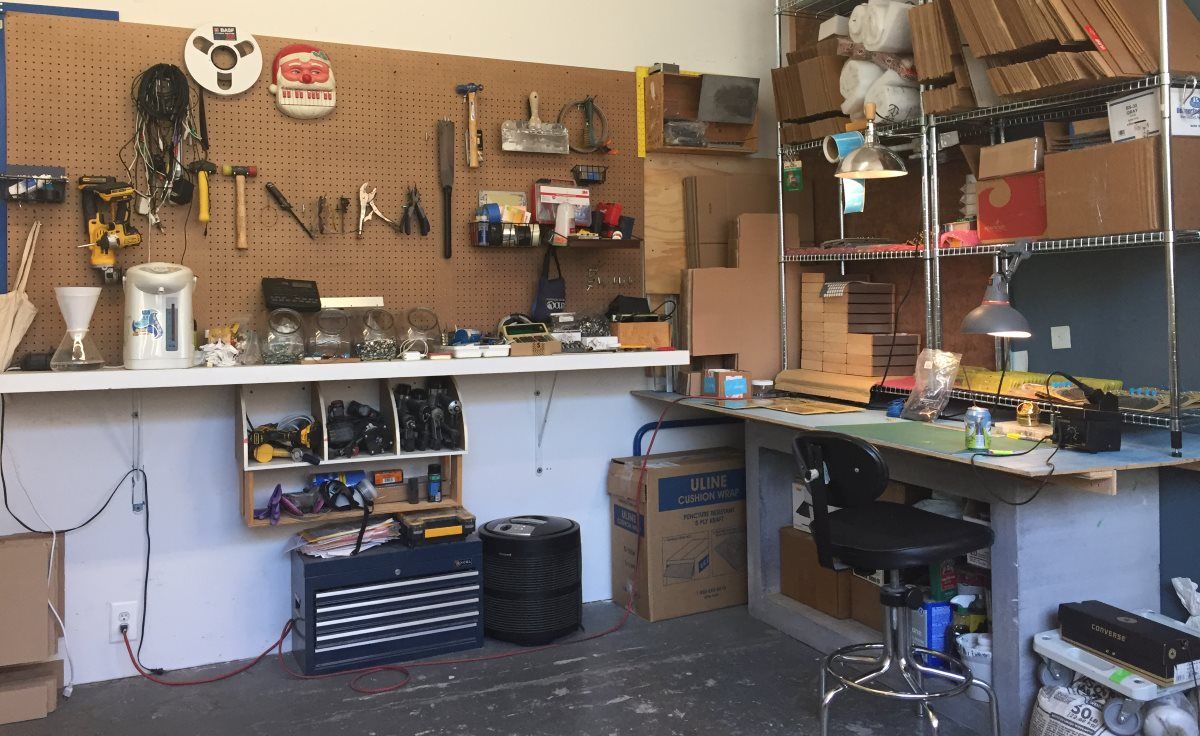
What are some of the biggest challenges you've faced
I would say my biggest challenge is that I've been a one person operation; Design, assembly, emails, ordering, billing etc. But again, I've just started getting some help!
What recommendations do you have for others looking to get into production?
See if you can design something where the basis of the idea is simple and don't be afraid of your experimental self.
What are some modular synth modules that you enjoy?
I no longer have a euro system however I used to have the Buchla inspired Verbos system which was very musical and playable in so many ways. It kept me focused on creating whole movements for film scoring and my own stuff. Very lush. I love the Morphagene and am super excited to be trading with Make Noise very soon so I can have it in it's own little box next to the Stereo Field!
What is your local modular synth scene like?
Brooklyn seems to have experimental and modular shows every day of the week and of course the amount of modular synths found in experimental music has risen greatly so it's pretty non-stop!
Aural oglers rejoice, the HC-TT, long since sold out, is coming back with some great revisions
I'm actually working on a new version of the HC-TT which will add a second knob so you can go both forwards and reverse with a regular tape and even more exciting is I'll be adding a record input along with some strange implementation essentially creating an analog sampler/processor or as I like to call it "liquid sampling" since it will only be recording while you are manually moving the tape across the head with the knobs. As a little side note I'll be releasing kits soon for a very simple experimental patching/interaction implement for Euro-rack.
Keen to hear and see more?
* Official site
* Landscape Tapes on Bandcamp
* Instagram
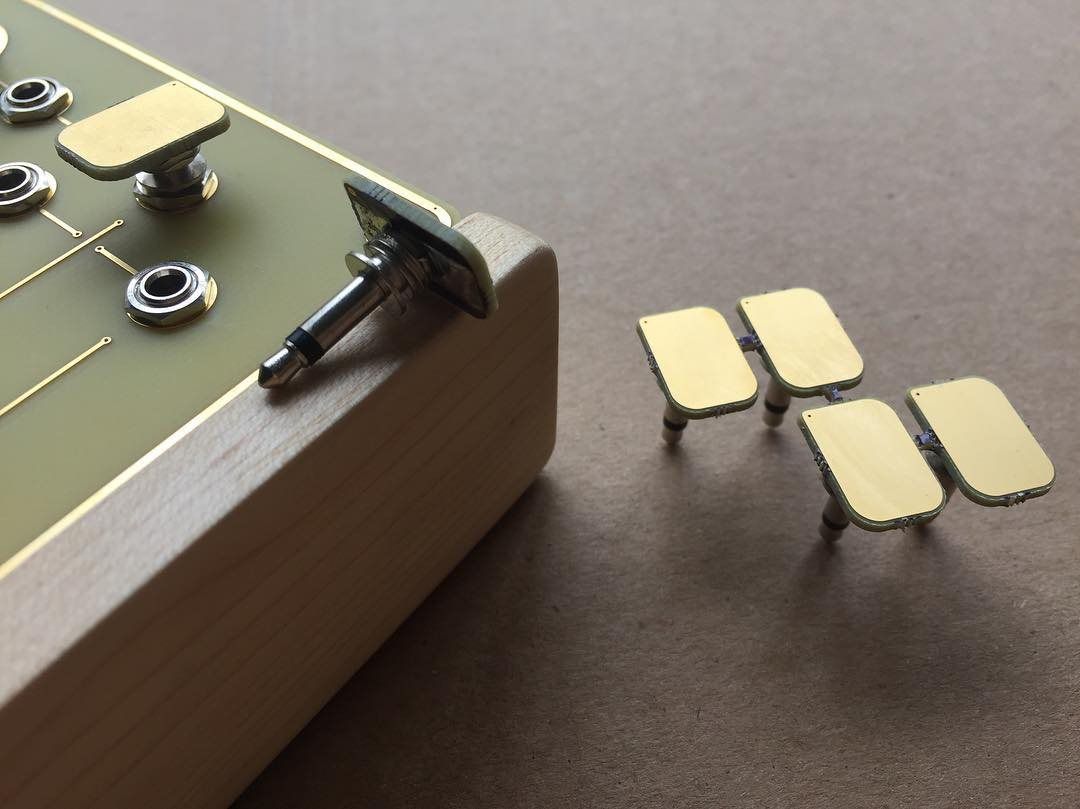
True to innovative form, Eric has just launched a new mini-jack sized touch-based plug. Connect them to your modular, apply finger and interact with your signal path in a new way. This is something that enscapulates his core concept of imbuing a human element into electronic instrumentation.
Photos (c) by Landscape
